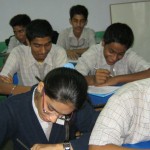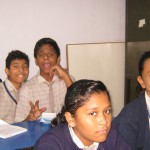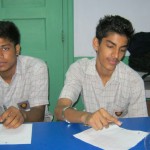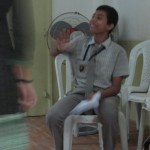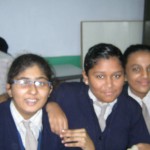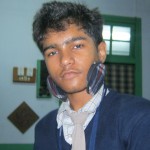Neither a free period nor an English class
When I began my sessions on the PeaceWorks School Curriculum at Vidyanjali School, the students had asked if they should consider my sessions as free periods where they could have fun or as a ‘regular English class’.
Neither, I told them, trying hard not to laugh. They were certainly not ‘free’ periods (I am quite a taskmaster) nor were they the kind of ‘English’ classes that the students were used to. The aim of the sessions wasn’t a mere appreciation of good literature but something else altogether.
I wrote my name on the blackboard and a few of theirs. Then I asked them to tell me a little about the individuals whose names had been written on the board but their deductions had to be based entirely on the cues received from the name. They came up with categories such as Gujarati, Hindu, and so on but my name proved to be a bit of a puzzle. ‘You have a z in your name so you must be a Muslim but then why is your surname Rai?’
They looked at me quizzically and asked if I was a Hindu or a Muslim.
I asked them if it was possible for me to be both. Or none.
‘You could have a Muslim mother and a Hindu father but how can you be none?’
‘Oh, you could be an atheist!’
‘Or married someone from another religion?’
‘So?’
‘None of the above,’ I replied, not yet ready to dispel their confusion.
We began by reading Elias Canetti’s ‘Loser’ and ‘Syllable Pure Woman’ and Jerry Pinto’s ‘A Question of Identity’. The readings were followed by discussions and heated debates as prejudices and presumptions were brought into the open and then defended or reluctantly abandoned.
‘Loser’forced us to spend a few moments contemplating the full impact of that word. About how some people are labelled ‘losers’ and forced to spend the rest of their days straining under its burden. As if to demonstrate this point, a shy girl was called a ‘loser’ right in middle of my session. I didn’t want to scold and be a teacher,nor did I want to entirely overlook this incident. So I asked both the ‘bully’ and the ‘bullied’ about being a loser. The girl, painfully shy, broke down and mumbled that it referred to her being fat. The bully, on the other hand, said it referred to someone who cried at every available opportunity. Now, like a ‘loser’, a ‘bully’ has problems too. This mischievous boy apparently didn’t fare too well in class and was regularly punished at home for his poor marks! So, who were we really? The way others saw us? The way others thought of us? The way we thought of ourselves? And how exactly did we think of our ourselves?
A Question of Identity’ allowed me to address the possibility of multiple selves. Many of the students confessed that they were forced to be one person or another. Some spoke about the prejudices they faced in the classroom or at home. The bullies, it turned out, had other parts to their personalities; but once they were ‘blacklisted’ as ‘bully’, they had to ‘fit the bill’. Not studying, not being courteous to the others, making fun of the quieter ones—all this was ‘part of the deal’ I was told. One of the girls, from the Northeast, said her classmates called her‘Chinese’ but since it was all in jest no one took it seriously. Which brought us to our next question: ‘Is laughter always the best medicine? Is humour always fun for everyone?’
No answer, no person, no mentality, was entirely right or wrong. But, as a perceptive young girl said, ‘We are all responsible for what we say or do.’ ‘Syllable Pure Woman’ gave me an occasion to discuss the value of one’s voice and the power of the word. Diplomacy, censorship, freedom of expression and honesty were not long in entering our discussions.
Similarly, the sessions on human rights and gender, helped along by the Ben Okri’s poem ‘Dream Children’ and Aishwarya Subramanyam’s ‘Lotus’, threw up an assortment of discriminations practiced at home and at school.
Every day, every session, we read, we faced a barrage of questions, and together we set out on a quest for answers.
If literature doesn’t make you think and squirm—yes, squirm at your preconceived notions, at your unquestioned acceptance of things round you, at your ignorance of the larger world and its peoples, if literature doesn’t make your head spin with unanswered questions then it’s just not good enough.
It is this precisely this aspect of literature—this ability of great writing to give birth to myriad questions—that inspires the PeaceWorks School Curriculum. PeaceWorks wishes to introduce contemporary issues of note—of identity, of rights, of gender—to the school students without obscuring them with jargon or heavy-handed academic language. PeaceWorks wishes to use literature, to use human stories, to use great writing through the ages in order to open up young minds to the world outside the classroom and outside the home.
Schoolchildren tend to passively absorb ideas from their immediate environments—their families, their friends, their teachers—without question, without weighing the pros and cons, without considering the alternatives. This is why these sessions have proved to be so gratifying.
At the end of our six-day trek through the forests of literature, we arrived at a clearing hacked free of the overgrowth of inherited attitudes and assumptions and warmed ourselves by the fires of a new understanding.
Shailza Rai

